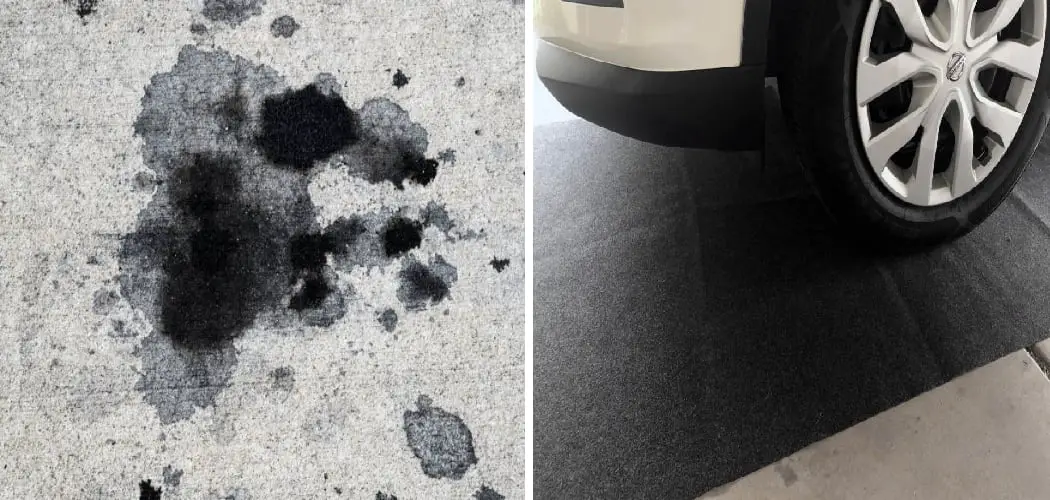Protecting your driveway from oil leaks is important not only for the safety of yourself and your family but also for the environment. Oil spills can contaminate soil, water supplies, and wildlife. Here are some on how to protect your driveway from oil leak.
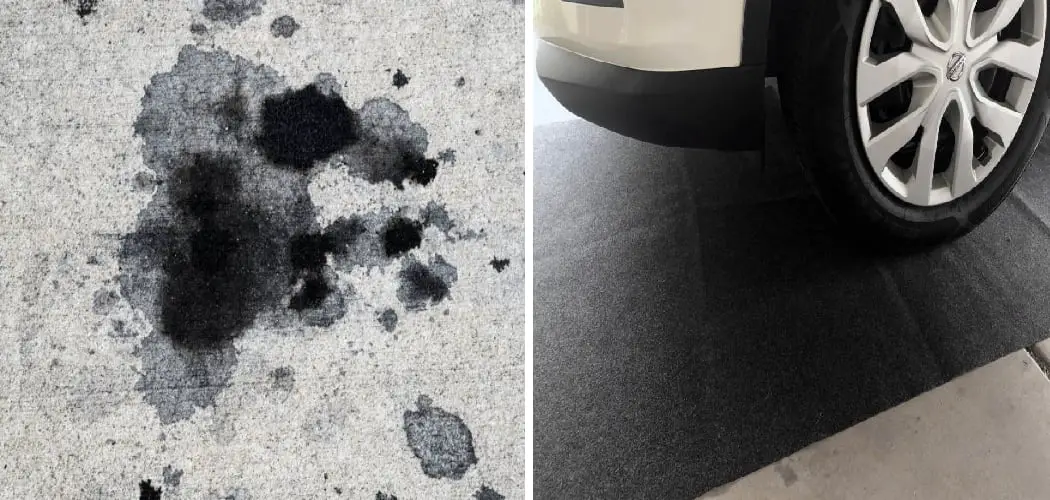
What Happens When a Car Leaks Oil in the Driveway?
When a car leaks oil on the driveway, it creates an environmental and safety hazard. The oil can seep into the soil and contaminate groundwater supplies. It can also create a slipping hazard for pedestrians and cars. In order to prevent these hazards, it is important to clean up the oil as soon as possible.
How to Protect Driveway From Oil Leak
Follow the steps discussed below on how to protect the driveway from the oil leak
Sealant
To protect a driveway from an oil leak, a sealant can be applied to the surface. The sealant will create a barrier between the driveway and the oil, preventing the oil from seeping through and staining the surface. Sealants come in a variety of colors, so it is possible to find one that will match the color of the driveway.
There are a few different types of sealant that can be used for driveways. The most common type is an asphalt-based sealant, which is applied in a liquid form and then spreads out to cover the surface. It dries to a hard finish and helps to protect the driveway from weathering and staining. Another type of sealant is made from coal tar, which is a thick liquid that is applied with a brush.
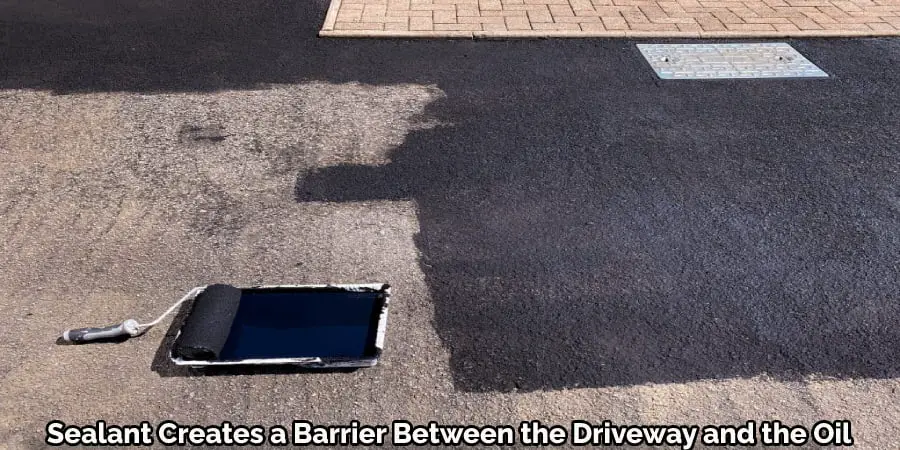
Plastic Sheeting
One way to protect a driveway from an oil leak is to cover it with plastic sheeting. This will help to prevent the oil from seeping into the cracks in the concrete and will make it easier to clean up once the leak has been stopped. It is important to use heavy-duty plastic sheeting that can withstand being stepped on or driven over, and it is also a good idea to secure it in place with duct tape or weights.
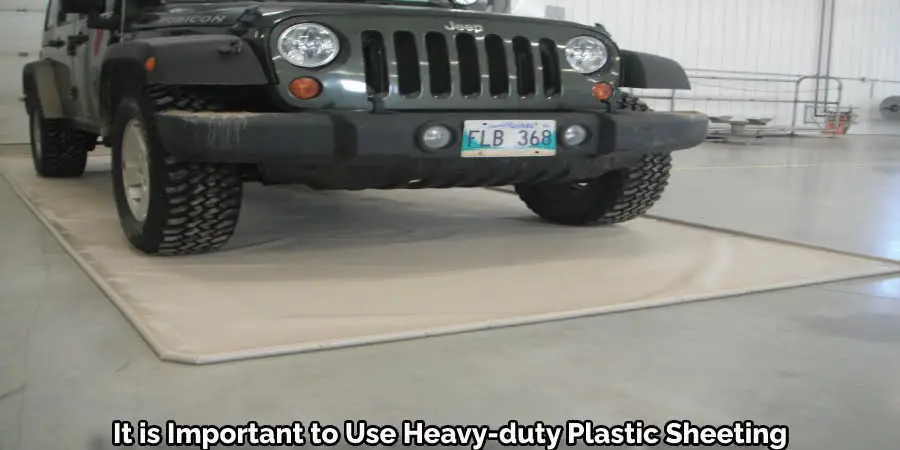
Sand
To protect a driveway from an oil leak is to cover it with sand. The sand will help to absorb the oil and will also make it more difficult for the oil to seep through the cracks in the driveway. Another way to protect a driveway from an oil leak is to install a concrete or asphalt driveway. This will help to prevent the oil from seeping through the cracks in the driveway.
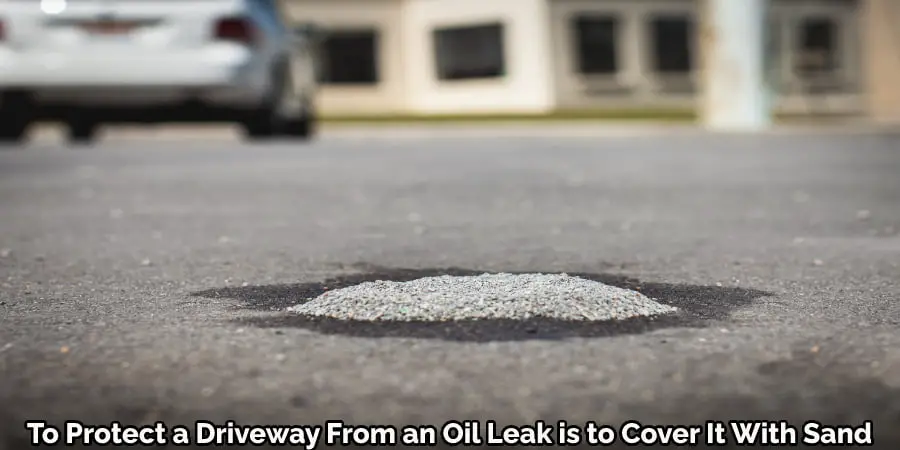
Kitty Litter
Kitty litter is an absorbent material that can soak up liquids, including oil, making it less likely for the liquid to seep through the cracks in the driveway and damage the surface. In addition, kitty litter can help to deter pests, such as ants and rodents, from coming near the oil leak.
Ashes
Another way to protect a driveway from an oil leak is by using ashes. Ashes will help to absorb the oil and will also help to prevent the oil from spreading. It is important to make sure that the ashes are spread evenly across the driveway and that they are not too thick, or else it will be difficult for cars to drive on the driveway.
Wood Chips
Someone can protect a driveway from an oil leak by covering it with wood chips. The wood chips will help to absorb the oil and keep it from spreading. Another option is to use a tarp or other type of cover to keep the oil from coming into contact with the driveway.
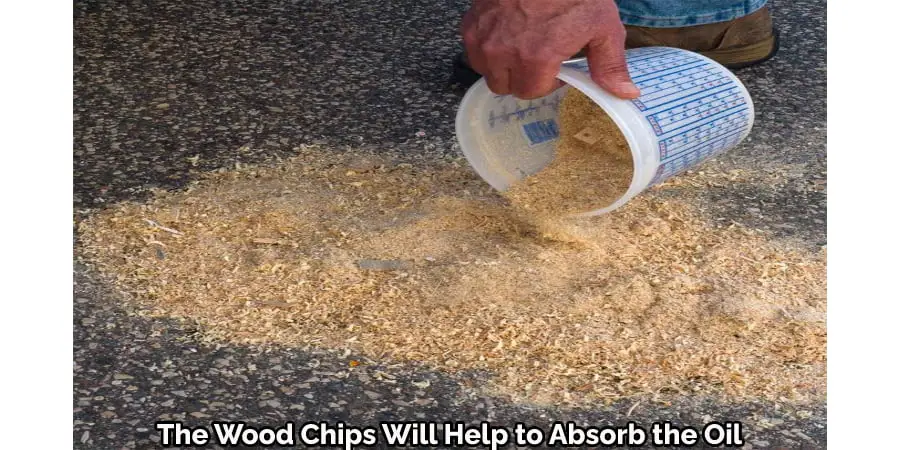
Newspaper
Oil spills can cause a lot of environmental damage, but there are ways to protect your driveway from an oil leak. One way is to place some newspapers down on the driveway before you start to change the oil. The newspapers will absorb the oil and keep it from leaking onto the driveway. You can also use a plastic tarp or a piece of cardboard to help protect the driveway.
Oil Spill Mat
Oil Spill Mats are unique products that have been created to help manage and clean up oil spills. They are made up of a series of interconnected plastic tubes that can be filled with absorbent material. This allows the mat to quickly soak up oil from the water’s surface. The mats can also be used to collect oil from the shoreline, making cleanup easier and more efficient.
Oil spill mats are an important way to protect your driveway from oil leaks. They work by absorbing the oil so it doesn’t spread and cause damage. Mats come in different sizes, so you can choose the one that’s best for your driveway. They’re easy to install, and you can just sweep up the oil that’s absorbed by the mat.
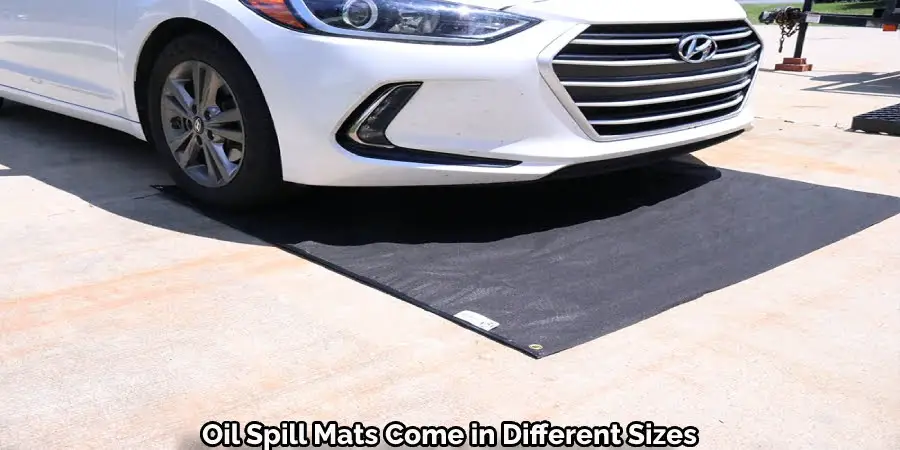
Drip Pan
A drip pan is a device that is used to catch the liquid that may drip from an appliance. This can be helpful in preventing water damage to floors or other surfaces. The drip pan is typically placed underneath the appliance, and it may have a drain or hole in order to funnel the liquid into a receptacle.
If you have an oil leak on your driveway, you can protect it with a drip pan. Place the drip pan under the car so that any leaked oil will be caught in the pan. This will help keep your driveway clean and protected from any damage.
Conclusion
In conclusion, there are a few things that homeowners can do to protect their driveway from an oil leak. They can install a drip pan under their car, or they can use a driveway sealant to create a barrier between the oil and the pavement. Additionally, they can keep their car in good condition so that there is less chance of an oil leak. By following these tips, homeowners can protect their driveway from any damage that may be caused by an oil leak.
People Also Ask
What to Put Under a Car That Leaks Oil on the Driveway?
One possible solution to the problem of oil leaking from a car and staining a driveway is to place a tarp or sheet of plastic under the vehicle. This will help to contain the oil and make cleanup easier. Another option is to set up some kind of containment system using old tires or barrels, for example, around the car to prevent the oil from spreading. If the leak is large, it may be necessary to call a tow truck to take the car to a garage for repair.
Can Flex Seal Stop an Oil Leak?
The product Flex Seal is a sealant that is applied to a surface in order to stop the flow of liquid. It is most commonly used to stop leaks in pipes, but it can also be used to stop leaks in other surfaces such as roofs or containers. The product Flex Seal is not designed to be a permanent fix, and it will need to be reapplied periodically in order to maintain its effectiveness.
What Is the Best Sealer for Concrete Driveways?
The best sealer for concrete driveways is a product that will protect the surface from weathering and staining. It is important to choose a sealer that is compatible with the type of concrete used, as well as the climate in which it will be used. Some sealers are more durable than others, so it is important to select one that will provide the desired level of protection.
How Often Do You Need to Seal Concrete Driveway?
The frequency of sealant application for a concrete driveway depends on the porosity of the surface and the exposure to weathering elements. In general, it is recommended to reapply the sealant every two to three years. However, if the driveway experiences a high amount of traffic or is located in a particularly harsh climate, it may be necessary to reseal it more often.
What Are the Pros and Cons of Sealing a Concrete Driveway?
There are both pros and cons to sealing a concrete driveway. Some of the benefits of sealing a driveway include that it can help protect the concrete from weathering and staining, as well as improve its appearance. Additionally, a sealant can help make the driveway easier to clean. However, there are some potential drawbacks to sealing a driveway, including that it can be expensive and may not last long if it is not applied properly.
Is Oil-based Driveway Sealer Better?
There is no definitive answer to this question, as both oil-based and water-based driveway sealers have their own advantages and disadvantages. Oil-based sealers tend to be more durable and longer lasting than water-based sealers, but they can also be more difficult to apply. On the other hand, water-based sealers are easier to apply but may not last as long. Ultimately, the best driveway sealer for your home will depend on your specific needs and preferences.
Is Driveway Sealing Worth It?
There is no definitive answer to this question as the benefits of driveway sealing vary depending on a number of factors, including the type of driveway surface, the climate, and how well the driveway is maintained. In general, however, driveway sealing can help protect asphalt surfaces from weathering and deterioration and can also make them less slippery. Sealing can also prolong the life of a driveway by delaying the need for repairs or replacement.
How Long Does Concrete Sealer Last?
Concrete sealers typically last for a few years, but the life of the sealer can be affected by a number of factors, such as weather and traffic. Sealing concrete is an important step in protecting it from water and other elements that can cause staining or damage. A good sealer will penetrate the surface of the concrete and form a protective barrier that will keep out moisture, dirt, and other debris.
Other Useful Resources That You May Want to Check Out
How Much Does It Cost to Remove Stucco

